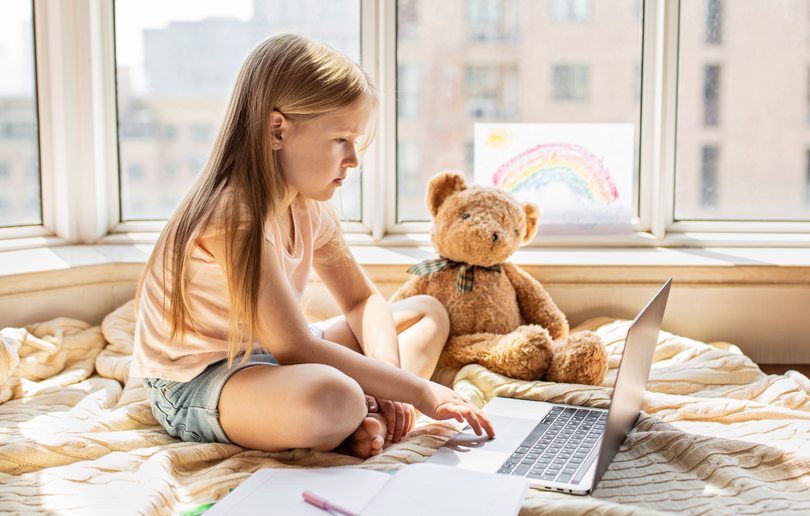An area that has become noticeably more complicated than usual during the ongoing pandemic is the issue of keeping children safe online. Ashley Michelle Curd, School Counsellor at iCademy Middle East explains…
As you might imagine, students are now spending unprecedented amounts of time online. This is due to most classes now being carried out on a variety of platforms and a seemingly endless amount of down-time to fill. When you are no longer as free to go outside or visit your friends like you used to, of course you’ll turn to the Internet to get your fix of social interaction. Like everyone else, I am incredibly grateful to be able to rely on the Internet to keep in touch with friends and family, but as a school counsellor, I can also see the negative effects slowly creeping up.
Parents often want to know what specifically they can do to keep their children safe online. While it’s a reasonable request, there isn’t just one action to take. Children need to develop a cautious attitude when browsing the Internet and to do that, they need to have an age-appropriate understanding of why they should feel this way. Below are some of the most important and effective ways to communicate with your child about the importance of Internet safety.

Encourage open conversation
Parents often want to protect their children by simply blocking all the bad things on the Internet or restricting screen time. While website blockers can certainly help, they can’t filter everything. Frankly, the language of technology and the Internet often moves much faster than the older generations can keep up with, and parents are bound to miss things. But blocks also offer no explanation to children on why they can’t visit these sites. And if you’ve ever had a child, or been a child, you know that the mystery of a hidden thing just makes you want to see it more. It’s important for children to understand that there is a serious reason for this.
Help your children understand the difference between online and in-person relationships
Friendships are developmentally significant at all stages of childhood, but are increasingly used as a means of emotional support as children get older. It’s how kids learn what is socially appropriate and how they develop coping mechanisms. Not so long ago, friendships where almost exclusively formed out of in-person interactions. However, now that the Internet is completely ingrained in everyday life and, indeed, essential to function, friendships are more often being formed without those involved knowing any real information about each other. This situation has the potential to be just as scary as it sounds.
Older students often put a lot of stock in friendships and relationships that form online. While chatting to people online is not inherently bad, becoming emotionally invested in virtual relationships is a real problem. When students spend a lot of time online, it becomes more difficult for them to separate real relationships from ones existing solely on social media. These virtual relationships may be a fun way to “meet” interesting people, but they are not real and it is important for children to be grounded enough in their real life to understand the difference.
Remind children that anyone could be anything online
As there is so little accountability on the Internet, there are no consequences for lying. It’s easier for children and teenagers to assume truthfulness, especially if they are used to it in their personal lives. This is, again, not inherently bad, but can make students less cautious online. Help your children think critically about the information they come across and to take everything with a grain of salt.
Clear rules for what information should never be shared online
You might even consider posting these next to the computer if you feel like your kids need a reminder. Addresses, phone numbers, names of family members, photos, any kind of personal information should never be shared without express permission from a parent. Having these rules laid out clearly can help children independently make good decisions.
Consider website blockers, but don’t rely on them completely
For younger children who are just starting to learn how to use the Internet appropriately, child blocks can certainly be beneficial. It’s a great way to prevent any kind of inadvertent clicking on “bad” websites and unsavoury pop-ups. However, older children often become quite savvy when finding ways around these blocks, often out of sheer curiosity. That’s not to say that parents shouldn’t still use these blocks, but that it’s even more important to speak with their children about why being safe online matters.
Help your children understand what cyber-bullying means
This is an equally important facet of online safety and is one that should be continually discussed from an early age. Children should feel able to let an adult know when they are feeling bullied and conversely understand how their words can affect others. Help children understand that whatever they write on the Internet never goes away for good. That’s a heavy concept for younger children to understand but older children need to be aware that their words now have the potential to follow them forever. The old wisdom rings true here: If you can’t say something nice, don’t say anything at all.
